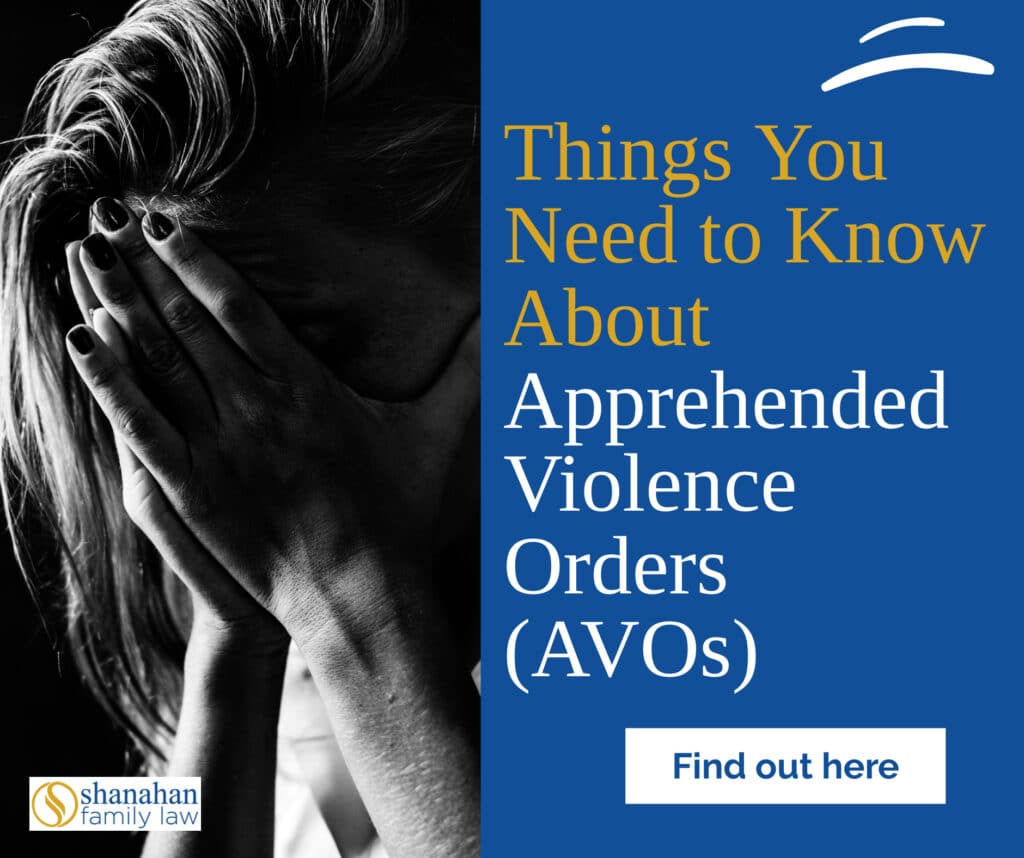The last person you would expect to suffer abuse from is a life partner. That is the person you should be able to trust the most. Unfortunately, one in four women reports suffering abuse in an intimate personal relationship. In these situations, it’s essential to ensure you get the help and protection you need.
Now, you might be asking, “What is an AVO?” Well, it stands for Apprehended Violence Order. It’s a legal way to help keep you safe from domestic violence. If you’re having problems at home, seek help. An AVO can help keep you safe.
Key takeaways 
- An apprehended violence order will protect victims from future violence within a family relationship.
- Different titles are used across jurisdictions, including family violence intervention orders or apprehended violence orders.
- The order has specific mandatory provisions and may include additional conditions if the Court deems them necessary.
- The police will serve the respondent with the application, requiring them to attend Court.
- The applicant and respondent will argue their case at the court proceedings.
- Breaching apprehended violence orders may result in a fine or imprisonment.
What is an AVO?
An apprehended violence order (AVO) is a court order protecting a victim of domestic violence. In other states, they may be called family violence intervention orders. All such orders impose certain mandatory conditions, including the following:
- Have good behaviour toward the aggrieved and any named adult or child;
- Do not commit domestic violence on the aggrieved or any named adult or child;
- Do not expose the child to domestic violence.
The Court may include additional conditions in the domestic violence order if necessary. Added conditions may consist of the following:
- Preventing the respondent from approaching the aggrieved;
- Stopping the respondent from being in locations associated with children;
- Forcing the respondent to return the aggrieved’s property;
- Preventing the respondent from accessing the aggrieved’s home.
Domestic violence orders are issued when a party has reasonable grounds to fear violence, intimidation or stalking. Protection orders from any state or territory are recognised across all jurisdictions. Victims may move interstate and remain protected person.
Different terminology is used depending on the circumstances. An apprehended domestic violence order protects victims in a domestic relationship with the respondent. An apprehended personal violence order covers cases where no domestic relationship exists.
In Queensland, a domestic violence liaison officer may work with the police force to improve their approach to domestic violence matters and advocate for victims.
Serving an apprehended violence order
If a party feels victimised by violent or intimidating behaviour, they should call the police. The police often apply for apprehended violence orders on the victim’s behalf. They may also file for an interim order that provides temporary protection for victims in immediate danger while the application is heard.
The police will serve the respondent with the AVO, requiring the respondent to appear in the local Court. The police will also gather evidence for the hearing date, including photos and statements from witnesses.
On the court date, the applicant and respondent will make their case. Both can call witnesses and submit evidence to support their claims. If the Court is convinced that an order is warranted, it will grant a final order. If the order doesn’t specify an expiry, it will typically last two years.

Breaching an AVO
Breaching the conditions of an AVO is a severe criminal offence. The Domestic and Family Violence Protection Act 2012 sets out the consequences. Ramifications may include:
- Criminal Charges: Breaching an ADVO is a criminal offence. The person who breached the order may be arrested and charged.
- Penalties: If convicted, the penalties can include a fine or imprisonment. The penalties may depend on factors like the nature of the breach and the respondent’s previous convictions. The respondent may face three to five years in prison or a fine of up to $16,000.
- Impact on Future Legal Proceedings: A breach of an ADVO can affect ongoing or future family law issues. The Court will consider the breach when determining matters such as parenting arrangements.
Work with us
A family violence order is a serious matter. You must obtain legal advice immediately if you want to apply for an avo or have been served with one. Working with a law firm experienced in domestic and personal violence issues is critical to helping you get the best possible outcome. The team at Shanahan Family Law will help you navigate these difficult circumstances. Contact us today for an initial free discovery call.

